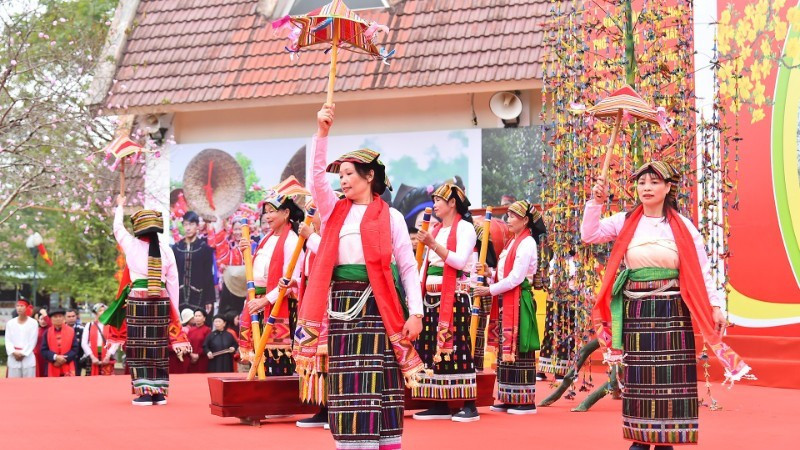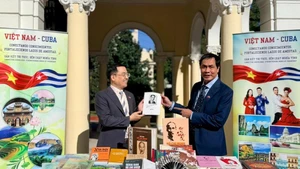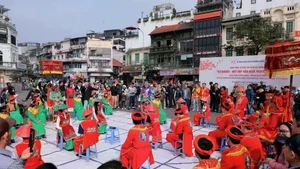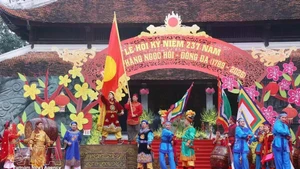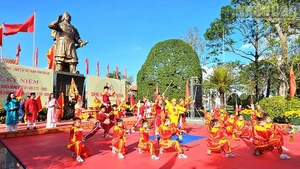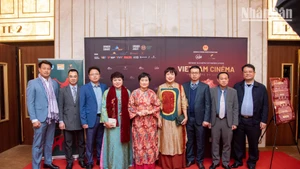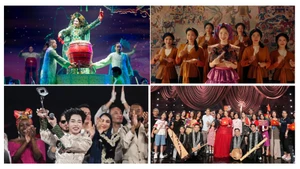In today’s era of deep international integration, culture serves as a form of soft power, an internal driving force that promotes sustainable socio-economic, scientific, technological, and tourism development. Establishing a symbolic date to honour national culture is therefore timely, reflecting the Party and State’s attention to culture as a key pillar of the country’s development strategy.
The proposed date, November 24, 1946, marks the opening of the first National Cultural Conference, which laid the ideological foundation for Viet Nam’s revolutionary culture. The conference brought together intellectuals and artists in the early days of nation-building, affirming the leading role of culture in the struggle for national independence.
Cuu Quoc newspaper, issue No. 416 dated November 25, 1946, published President Ho Chi Minh’s speech, in which he expressed his wish for a new Vietnamese culture built upon the happiness of the people and the nation.
During that period, President Ho Chi Minh also declared that “Culture must light the way for the nation.” Nearly 80 years later, this guiding principle remains profoundly relevant, especially amid digital transformation and globalisation.
Should November 24 be designated as National Culture Day, it would provide an opportunity for society to reflect on the nation’s cultural journey, inspire pride, and encourage the preservation and promotion of Vietnamese identity in a changing world.
However, the establishment of a National Culture Day should be considered comprehensively within the existing cultural policy framework to ensure coherence and effective implementation.
Viet Nam already observes several sector-specific commemorative days, such as Vietnamese Stage Day (August 12, lunar calendar), Vietnamese Cinema Day (March 15), and Vietnamese Music Day (September 3). Particularly, since 2005, November 23 has been celebrated as Vietnamese Cultural Heritage Day, a time to honour traditional values and heritage preservation efforts.
Designating November 24 as National Culture Day would thus provide a broader framework that underscores the overarching role of culture in all aspects of social life. It would also complement Cultural Heritage Day, creating a sequence of celebrations that both preserve and innovate upon the nation’s spiritual and cultural values.
The content and activities of National Culture Day should align with the National Target Programme on Cultural Development for the 2025–2035 period, whose first phase (2025–2030) focuses on nine specific objectives and ten key components aimed at improving cultural life and fostering Vietnamese people of the new era — individuals with strong character, moral standards, and a distinct cultural identity.
Above all, National Culture Day must truly serve the people, becoming a space to spread positive values, nurture humanism, strengthen ethics and national spirit. In doing so, it will inspire creativity, resilience, and aspiration among Vietnamese people in the new era.
Culture will indeed “light the way” when expressed through concrete actions and daily behaviour, shaping a healthy, humane society.
